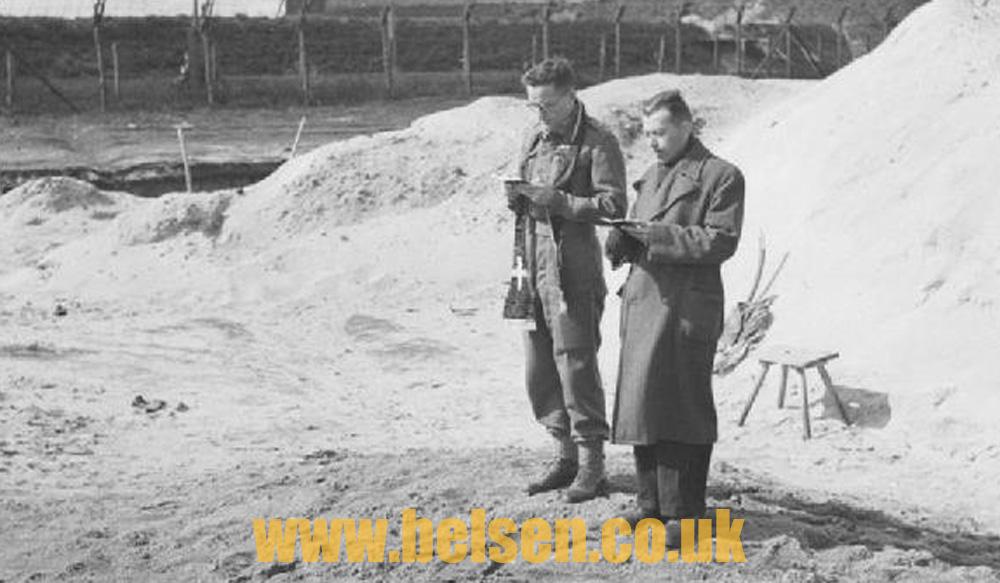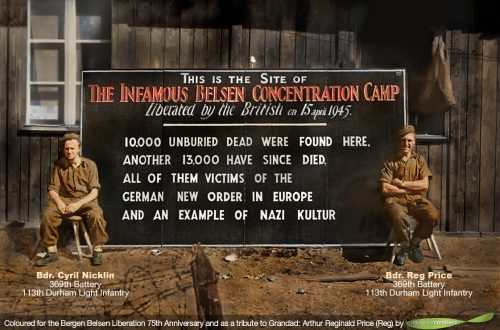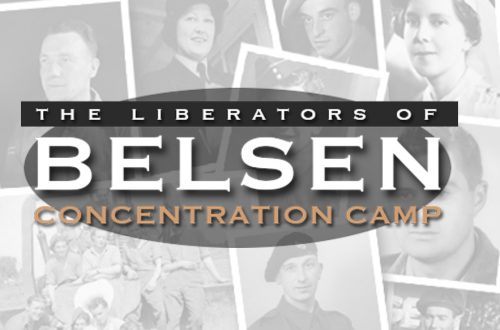
Leslie Hardman
Reverend Leslie Henry Hardman MBE HCF (18 February 1913 – 7 October 2008) was an Orthodox Rabbi and the first Jewish British Army chaplain to enter Bergen-Belsen concentration camp, an experience “that made him a public figure, both within his community and outside it”.
Hardman was born in Glynneath, Wales to a Polish father and Russian mother who were both Jewish. The couple lived in the Welsh valleys and worked as small business traders. While he was still young, the family moved to Liverpool.
n the outbreak of the Second World War in September 1939, Hardman enlisted in the Army Chaplains’ Department, being stationed in Hertfordshire with the East Central District of the Eastern Command. In the autumn of 1944 Hardman served in the Netherlands, where he learned of the atrocities perpetrated against Jews. There he became involved with members of the remaining Jewish community, and celebrated Hanukkah with them. From the Netherlands he was sent to Nazi Germany, where he remained until the end of the war. Unusually for a chaplain, he insisted on being armed while on active service.
By April 1945 Captain Hardman was the 32-year-old Senior Jewish Chaplain to the British Forces, attached to the 8th Corps of the British 2nd Army. On 17 April 1945, Hardman entered Bergen-Belsen concentration camp, two days after it had been liberated by British military forces, under the command of fellow Welshman Brigadier Glyn Hughes. Hardman became the first Jewish chaplain at the site. On arriving at the camp he tried to bring comfort to the survivors and said the Kaddish, the Jewish memorial prayer, over the dead. He tried to persuade the army bulldozer drivers who were pushing the bodies of the dead into a pit to bury them with some kind of dignity. Hardman supervised the burial of about 20,000 victims, “giving them the dignity in death of which they had been robbed in life”.
A British Army bulldozer pushes bodies into a mass grave at Belsen (19 April 1945)
By April 1945 Captain Hardman was the 32-year-old Senior Jewish Chaplain to the British Forces, attached to the 8th Corps of the British 2nd Army. On 17 April 1945, Hardman entered Bergen-Belsen concentration camp, two days after it had been liberated by British military forces, under the command of fellow Welshman Brigadier Glyn Hughes.[4] Hardman became the first Jewish chaplain at the site.[5] On arriving at the camp he tried to bring comfort to the survivors and said the Kaddish, the Jewish memorial prayer, over the dead. He tried to persuade the army bulldozer drivers who were pushing the bodies of the dead into a pit to bury them with some kind of dignity.[2] Hardman supervised the burial of about 20,000 victims, “giving them the dignity in death of which they had been robbed in life”.[6]
Later he wrote of his experience at the camp,
“Towards me came what seemed to be the remnants of a holocaust – a staggering mass of blackened skin and bones, held together somehow with filthy rags. ‘My God, the dead walk’, I cried aloud, but I did not recognise my voice… [peering] at the double star, the emblem of Jewry on my tunice – one poor creature touched and then stroked the badge of my faith, and finding that it was real murmured, ‘Rabbiner, Rabbiner’.”
Years later, Hardman told a correspondent from the BBC,
“If all the trees in the world turned into pens, all the waters in the oceans turned into ink and the heavens turned into paper, it would still be insufficient material to describe the horrors these people suffered under the SS.”
When Richard Dimbleby made a radio report of the Belsen liberation from the camp itself for the BBC, Hardman could be heard singing a hymn with two women in the background, one of whom died almost immediately after the recording was made. He circumcised Jewish babies who had been born in the camp as well as burying those who died. He conducted the marriage of a survivor and the British sergeant who had liberated her.
He was recorded as having said that he had lost his faith at Belsen. However, he later stated, “I didn’t lose my faith, but some of the words of the prayers I said at Belsen stuck in my throat. I couldn’t understand how the God I worshipped could permit this.”
Hardman was present during the interrogation of Josef Kramer, the Commandant of Bergen-Belsen; Kramer’s complete lack of remorse made a deep impression on him. Kramer would later be tried, and was hanged in December 1945.
13,994 total views



